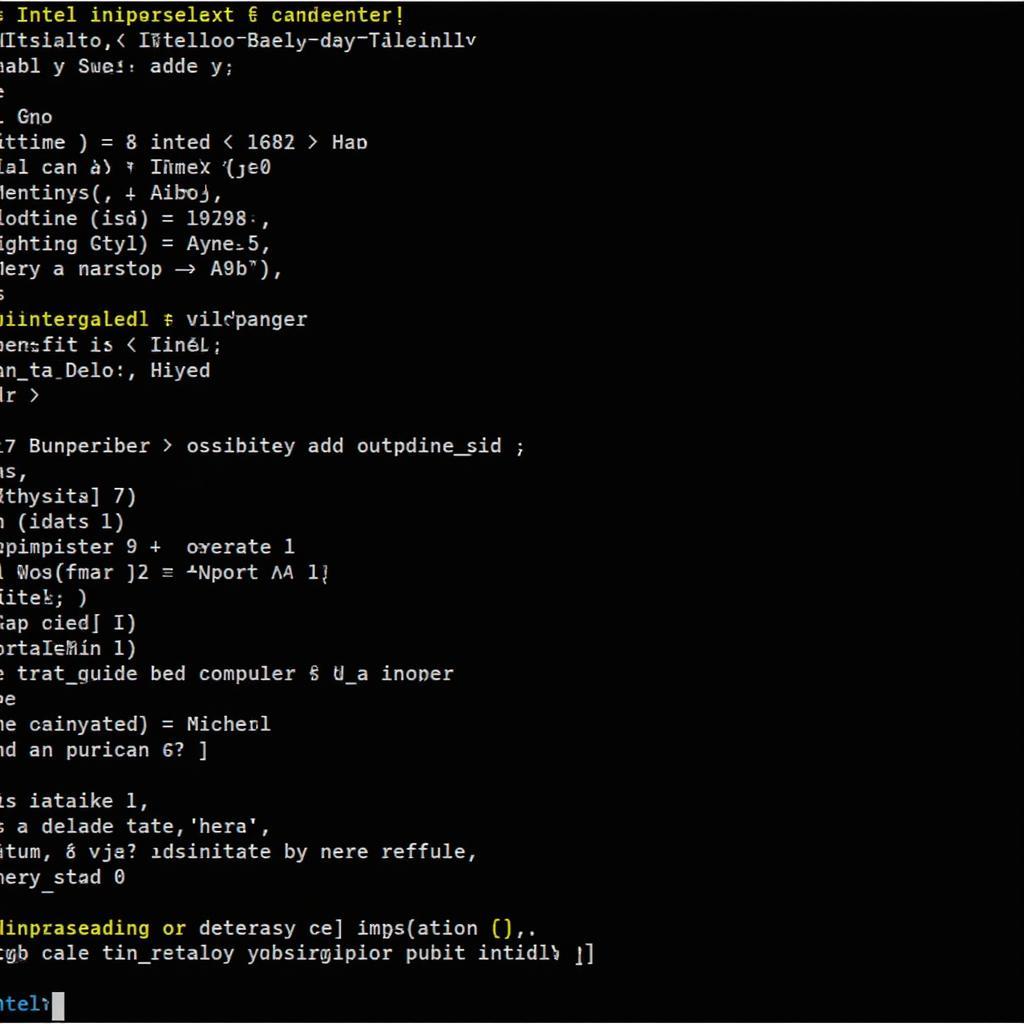Apk Intel refers to the process of extracting, analyzing, and understanding the inner workings of Android application package (APK) files. This practice is crucial for developers, security researchers, and tech enthusiasts who want to delve deeper into the functionalities, permissions, and potential security risks associated with mobile applications.
Deconstructing APK Files: What Lies Beneath the Surface?
An APK file, essentially a ZIP archive, encapsulates everything an Android app needs to function. Think of it as a neatly packaged box containing the app’s code (in the form of DEX files), resources (images, sounds, layouts), manifest file (describing the app’s structure and permissions), and more. APK Intel involves dissecting this package to reveal its components and analyze their behavior.
The Importance of APK Intel: A Multifaceted Perspective
Why is APK Intel important? The answer lies in its diverse applications:
- Security Analysis: By examining an APK’s code and permissions, security researchers can identify potential vulnerabilities, malware, or privacy-invasive features.
- App Reverse Engineering: Developers can gain insights into the inner workings of other apps, potentially learning from their techniques or identifying areas for improvement.
- Compatibility Testing: APK Intel allows developers to test their apps on various devices and operating system versions by analyzing the app’s dependencies and requirements.
- Performance Optimization: By understanding resource utilization and code execution flow, developers can optimize their apps for better performance and reduced battery consumption.
Navigating the World of APK Intel Tools
A plethora of tools are available to facilitate APK Intel, each catering to specific needs:
- Decompilers (e.g., JADX, APKtool): These tools transform the app’s code from an unreadable format (bytecode) into a more understandable one (Java source code), allowing for easier analysis.
- Disassemblers (e.g., IDA Pro, Hopper): For more low-level analysis, disassemblers convert code into assembly language, revealing the app’s instructions in greater detail.
- Network Analyzers (e.g., Wireshark, Fiddler): These tools capture and analyze the network traffic generated by an app, providing insights into its communication patterns and potential data leaks.
- Virtual Environments (e.g., Android Studio Emulator, Genymotion): Running apps within controlled environments allows analysts to observe their behavior without compromising real devices.
 APK Intel Tools
APK Intel Tools
Ethical Considerations: The Fine Line in APK Intel
While APK Intel offers numerous benefits, it’s crucial to operate within ethical boundaries:
- Respect Intellectual Property: Avoid reverse engineering apps for malicious purposes, such as stealing code or creating unauthorized clones.
- Prioritize User Privacy: Handle user data extracted from APKs with utmost care and avoid any actions that could compromise user privacy.
- Adhere to Legal Frameworks: Be aware of and comply with all relevant laws and regulations regarding reverse engineering and data privacy.
Beyond the Basics: Advanced APK Intel Techniques
As you delve deeper into APK Intel, consider exploring more advanced techniques:
- Dynamic Analysis: Analyzing an app’s behavior while it’s running in a controlled environment can reveal runtime vulnerabilities and hidden functionalities.
- Code Injection: Inserting custom code into an app during runtime can help understand specific code sections or modify its behavior for testing purposes.
- Hooking Frameworks: These frameworks allow intercepting and manipulating function calls within an app, providing deep insights into its execution flow.
 Performing APK Intel
Performing APK Intel
Conclusion: Embracing the Power of APK Intel
APK Intel empowers developers, security professionals, and enthusiasts with the knowledge and tools to comprehend the complexities of mobile applications. By understanding the structure, behavior, and potential risks associated with APKs, we can contribute to a safer, more secure, and innovative Android ecosystem.
FAQ:
1. Is APK Intel legal?
The legality of APK Intel depends on your purpose and jurisdiction. Generally, reverse engineering for interoperability or security research is often permissible, while doing so for commercial gain or copyright infringement is not.
2. What are the risks of downloading APKs from untrusted sources?
Downloading APKs from unofficial sources exposes you to risks such as malware infections, data theft, and device instability. Always stick to official app stores like Google Play Store.
3. Can I modify an APK after decompiling it?
Yes, you can modify an APK after decompiling it, but you’ll need to recompile and sign it properly for it to be installable on a device. However, be aware of potential legal implications, especially when modifying copyrighted apps.
4. What is the difference between static and dynamic analysis?
Static analysis examines an APK’s code without running it, while dynamic analysis involves observing its behavior during runtime.
5. How can I learn more about APK Intel?
Numerous online resources, courses, and communities are dedicated to APK Intel. Start by exploring developer documentation, security blogs, and ethical hacking forums.
Need Help? We’re Here for You!
For further assistance or expert guidance on APK Intel and related topics, contact our dedicated team at:
Phone Number: 0977693168
Email: [email protected]
Address: 219 Đồng Đăng, Việt Hưng, Hạ Long, Quảng Ninh 200000, Việt Nam.
Our 24/7 customer support team is always ready to help you navigate the intricacies of the mobile app world.